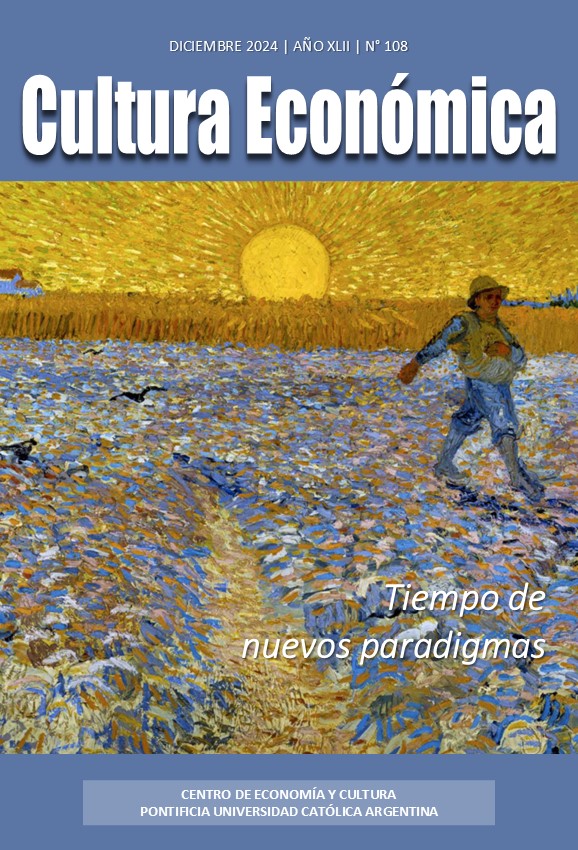The human dimension of economics and politics in Adriano Olivetti’s thought
DOI:
https://doi.org/10.46553/cecon.42.108.2024.p35-49Keywords:
person and community, State, economy with a human face, community personalism, civil economy, welfare factoriesAbstract
This article outlines the essential features of the life and extraordinary and complex work of Adriano Olivetti. He created a new business model in Ivrea based on a humanistic conception of economics. Its economic philosophy places the person and work at the center, highlights the importance of spiritual and cultural forces and values, considers the industry as a factory of well-being for the entire community, seeks the conditions to achieve the common good within a specific community and gives priority to the person over the State. This conception has its roots in Christian civilization, which does not consider individual benefit as the ultimate goal of economic activity, but rather places the integral good of the person and the entire community at the center. From this perspective, Adriano Olivetti can be considered a precursor of civil economy. Olivetti was inspired by the communal personalism of Maritain and Mounier, and sought to implement a community-based political order by creating the "Community Movement." In the statute and political declaration of this movement, a federal vision of the State is manifested, the principle of autonomy, decentralization and political participation of workers, insistence on spiritual and Christian values, and a conception of the socialized but non-stated economy. Olivetti's cultural and political legacy is truly significant and hopes to be fully developed in the third millennium.
Downloads
References
Olivetti, A. (2015). La città dell’uomo. Edizioni di comunità.
Olivetti, A. (2023a). Ai lavoratori. Edizioni di comunità.
Olivetti, A. (2023b). Il cammino della comunità. Edizioni di comunità.
Olivetti, A. (2024). Le Fabbriche di bene. Edizioni di Comunità.
Silmo, G. (21 de agosto de 2020). Centri Comunitari e I-Rur. Olivettiana. https://olivettiana.it/centri-comunitari-e-i-rur/
Weil, S. (2016). La condizione operaia (trad. de F. Fortini). SE.
Downloads
Published
How to Cite
Issue
Section
License

This work is licensed under a Creative Commons Attribution-NonCommercial-ShareAlike 4.0 International License.













